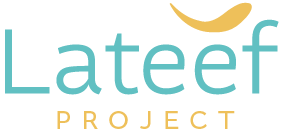What to expect when you begin counselling.
Taking the first steps to see a counsellor can feel scary because you do not know what to expect. There is still a stigma around getting psychological support and the idea may make you feel weak or too vulnerable. You may also worry about being misunderstood or judged. But what can you actually expect if you decide to start counselling?
What IS counselling, and how will it help me?
Counselling is a form of talking therapy. Counselling will offer you a supportive and confidential space where you can express your feelings and thoughts without feeling judged or condemned. Our goal is for you to get a deeper insight into your difficulties and their sources, and find ways of understanding yourself, your thoughts, feelings, relationships and circumstances. Counselling usually feels as if you are disentangling, little by little, all the emotions that come linked with your thoughts. It is a gentle and compassionate process that can guide you to take the steps needed to work through any difficulties or issues you may be facing in your life.
Our Islamic counsellors work very much in an empathic way to connect deeply with those they work with. You can expect to find a warm, inviting and very gentle environment and a counsellor who is focused on your needs and wellbeing. You will be able to bring to the sessions what matters to you in your life, including any cultural, religious and spiritual understandings, regardless of what your religious inclinations and beliefs are.
How often do I need to attend?
Your sessions will be agreed between you and your counsellor and are usually once a week, at the same time and on the same day. Sessions last for 50 minutes. Your counsellor will offer you six, eight, or 12 sessions, with a maximum of 18 sessions, subject to review.
Do I need to pay?
No, all our services are provided for free.
Will my counsellor share what I say with others?
Our counsellors take confidentiality very seriously and what you share in sessions remains confidential within the Lateef Project. Your counsellor may discuss your work together with their supervisor; this is to ensure that they are working with you safely and in the best possible manner. These discussions are also confidential and carried out in a sensitive way, with your wellbeing as the key focus. Confidentiality will be broken only if your counsellor has concerns that you or anyone else is at risk. Examples of this are where the counsellor feels there is a risk of:
Serious injury or harm to yourself or others
Disclosure of child abuse
Criminal activity such as drug trafficking and terrorism
Summons by a court of law
Wherever possible you will be informed if a breach of confidentiality is necessary and recommendations will be discussed. All our counsellors are members of a professional counselling body and adhere to their ethical framework and guidelines to ensure that you receive the highest quality service.
What if I need more counselling?
At present, the Lateef Project cannot offer more than 18 sessions of counselling to you. This is so we can make sure our service reaches the widest number of people in need, and give as many people as possible some tools to help them navigate their lives and wellbeing. However, if you feel you need more counselling, towards the end of your sessions your counsellor will discuss this with you and explore various referral options or ways you may be further supported where these are available.
How do you provide these services during the COVID-19 pandemic?
During the pandemic our counselling service is limited to telephone-based and online counselling, rather than face-to-face sessions. Unfortunately, with these limitations, our service for this time will be provided in English only. The reason for this is that though we have a team of counsellors who speak several languages and are looking forward to working with you face-to-face there are subtleties in languages within this kind of sensitive work that sometimes cannot be expressed or picked up over the phone or via Zoom or Skype. We hope in time to offer a wider range of languages, and once the pandemic has passed to return to our usual in-person practice.
The current situation also means the service is being offered for the time being to adults only. We will review this as the situation develops to broaden our service to work with younger people, in the first instance through telephone and internet-based services. When there is a suitable location for working with children, we will broaden our service to work with children who are over 11 years old.
